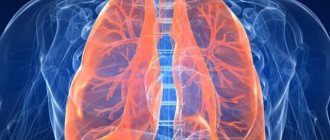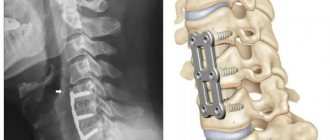Blood pressure numbers are a very individual indicator. For some, the norm fits within the framework approved by WHO specialists, while others feel great with slightly different indications. What does it mean when tonometry reveals a pressure of 70 over 40 or 70 over 50, should I worry about what to do?
Causes
Scientific research has led to the emergence of several independent theories about the sources of the disease. These include:
Do not self-medicate. Consult a specialist:
Constitutional-endocrine - hypotension is formed against the background of a primary decrease in vascular tone as a consequence of dysfunction of the adrenal cortex. Upon careful study, it was found that with pathology, certain functions of the adrenal glands decrease: mineralocorticoid, glucocorticoid and androgenic type.
Vegetative – the cause of the disease is considered to be an increase in the functioning of the cholinergic and a decrease in the functionality of the adrenergic department. Clinical indicators indicate an increased amount of acetylcholine, a decrease in the amount of catecholamine in the bloodstream and urine. Insufficient production of norepinephrine provokes a decrease in diastolic and average blood pressure levels.
Deviations in the functioning of the sympathetic-adrenal department predispose to instability in the circulatory department and blood circulation in the brain, disruption of the respiratory system, and a decrease in oxygen consumption.
Neurogenic - this theory is recognized by almost all specialists. Deviations in blood pressure regulation of the neurogenic pathway are the main sources of the disease. Changes in processes are influenced by psychogenic factors, and a unique type of neurosis is observed. The problem provokes hemodynamic abnormalities: capillary dysfunction with a decrease in peripheral resistance.
Specific causes of the development of the disease cannot be detected, but there is a version of the relationship between low blood pressure and genetic factors and disorders of physiological regular mechanisms. Hypotension provokes autoregulation processes, a discrepancy between minute blood volume and peripheral vascular resistance. As the disease develops, the latter gradually decreases.
Humoral - the problem is caused by an increase in kinins, prostaglandin A, E, which have a vasodepressor effect. Great importance is attached to the amount of serotonin and its derivatives in the bloodstream, which are responsible for normalizing blood pressure.
The primary type of pathology is attributed to individual variations of neurosis of the vasomotor center with deviations in the functioning of the peripheral depressor system and a secondary change in the functionality of the adrenal glands. This type of illness is provoked by diseases of the kidney, endocrine, gastrointestinal, cardiovascular, central nervous system, and taking certain medications.
A sudden drop in pressure of 70 to 40 can be provoked by massive bleeding, long-term unbalanced diet, allergic reactions, dehydration, pregnancy, sudden climate change, and stressful situations.
Increasing blood pressure using traditional methods
If you want to normalize your blood pressure using natural remedies, below is a list of foods that increase blood pressure.
Raisins are rich in nutrients that will help restore blood pressure. By eating a few raisins every day, you can bring your blood pressure back to normal. Soak six to ten raisins in water and leave overnight. The next morning, eat raisins on an empty stomach, then drink a glass of cool water. Do not eat or drink for the next hour to maximize the effectiveness of the raisins.
Coffee not only wakes us up, but also relieves the symptoms of hypotension; a daily cup of black coffee will help restore blood pressure. Drink strong black coffee twice a day to restore normal blood pressure. However, if you suffer from diabetes or have high cholesterol levels in your blood, it is recommended to drink coffee without sugar.
Eat More Fiber
Foods rich in fiber are consumed to control blood sugar and cholesterol levels in the body, as well as to normalize digestion. Add to your diet foods such as carrots, peas, and fruits such as bananas and cereals, which are rich in sucrose and fiber. Not only are these healthy foods that will nourish your body and improve your immunity, such foods will also regulate the body's hormone production and keep your blood pressure normal!
Basil is rich in nutrients that can restore blood pressure. Wash fifteen basil leaves and squeeze the juice out of them. Add a tablespoon of honey to the basil juice and mix well. Consume on an empty stomach.
Consume more sodium and salt
Sodium in food is a major factor in high blood pressure in adults and children. However, if you have been diagnosed with low blood pressure, you may want to moderately increase your sodium and salt intake. Packaged or processed foods are not only high in sodium, but also cholesterol and preservatives.
Almonds and milk are another famous home remedy for 70/50 blood pressure. Eat a handful of almonds every morning on an empty stomach. You can also make a drink by grinding 5-6 almonds and mixing with half a glass of warm skim milk. Drink a glass of the drink every time you feel dizzy or weak due to low blood pressure.
Symptoms
The physiological form of the disease (pressure 70 to 40) has no obvious clinical signs, the patient has no complaints. In this case, the decrease in pressure is regarded as the age norm.
In other variants of the disease, symptoms are associated with impaired cerebral circulation, manifested by attacks of acute headaches in the temporal zones and migraines. The following signs indicate a decrease in blood pressure to a level of 70 by 40 units:
- Rapid onset of fatigue, weakness and decreased performance;
- Orthostatic hypotension with dizziness, darkening of the eyes with a sudden change in body position;
- Semi-fainting and short-term loss of consciousness;
- Memory problems, absent-mindedness, sudden mood swings, depression;
- Constant drowsiness, tachycardia, painful sensations in the chest space;
- Deviations in thermoregulation processes, stable release of sweat on the palms and soles.
A long-term decrease in pressure of 70 to 40 units provokes problems with the functioning of the digestive system, disruptions of the menstrual cycle, and decreased potency.
What indicates the development of hypotension
With low blood pressure, it is the circulatory system of the brain that experiences special stress. This is due to the fact that when blood pressure decreases, the vessels are not saturated with a sufficient amount of oxygen, which is reflected in the following symptoms:
- Strong headache. Pain is mainly felt in the occipital, temporal or frontal region. The pain begins suddenly and becomes constant, often this symptom is accompanied by a feeling of nausea;
- Patients with low blood pressure become weather dependent - any changes in the weather can worsen the condition; the body reacts especially sharply to magnetic storms;
- Possible dizziness, clouding of consciousness and fainting;
- Due to impaired blood circulation, numbness of the extremities, both lower and upper, is observed;
- The limbs become too sensitive to low and high air temperatures.
Why is it dangerous?
The moderate and physiological form does not pose any obvious danger to the body; the condition is considered normal for the patient. If a pressure of 70 to 40 units is observed for a long period of time or is characterized by suddenness, then various pathologies become the consequence.
With the development of vegetative reactions in the form of attacks of acute headaches, extraneous ringing in the ears, periodic dizziness, the outcome may be problems with acute vision, coordination, and constant loss of consciousness.
As the disease progresses, the body weakens, its physical endurance decreases, and disturbances in the functioning of the heart and brain appear.
Normal blood pressure and hypotension
Average blood pressure numbers are not the norm for every person. For some, these indicators may exceed standard limits, while others do not notice their decrease. If the pressure is low, it is important to take into account the patient’s well-being: if he is full of strength and cheerful, then no deviations are visible.
A prolonged state of the body in which blood pressure is reduced is called hypotension. But very often there are people who feel great with tonometer readings of 100/70 and even 90/60; they are called hypotensive. In this case, low blood pressure is considered a physiological norm. But when a decrease in blood pressure is accompanied by unpleasant symptoms or the indicated numbers drop to 70 to 40, this is a reason to consult a doctor.
Types of hypotension
Modern medicine distinguishes three main types of hypotension. A decrease in pressure occurs due to various disorders in the body:
| Type of hypotension | Features of development |
| Vegetative-vascular | Develops as a result of improper functioning of the autonomic nervous system. Often the cause of a decrease in blood pressure is a violation of the brain, which gives incorrect signals and, instead of normalizing the pressure, gives a command to reduce it. Most often diagnosed during adolescence. |
| Orthostatic | In this case, a decrease in readings on the tonometer occurs with sudden movements. At this point, there is a rush of blood to the legs and arms, and the amount of blood reaching the brain decreases. Most often, this type manifests itself in an elderly person. |
| Postprandial | This form of hypotension is distinguished by the fact that a decrease in pressure occurs some time after eating. A general decrease in blood pressure in this case occurs due to a rush of blood to the intestines and stomach and a decrease in it in the brain. |
Therapy methods
Stable pressure of 70 to 40 units requires primary non-drug treatment. After a complete diagnostic examination, your doctor may recommend the following treatment options:
Normalization of the daily schedule - includes mandatory sleep of 8 hours, the head of the bed should be higher than the level of the feet. Daily walks for two hours, excluding hot baths, saunas, steam rooms, prolonged exposure to direct sunlight, hyperventilation. The regimen includes morning exercises with a contrast shower, sports training: jogging, dancing, swimming in the pool, exercise bike, tennis.
Massage sessions take place in a clinic or hospital.
It is recommended to carry out a general massage, the collar area, lower and upper extremities. It is allowed to use special devices and foot mats at home.
Transition to a specialized diet - in addition to tonic drinks, it is recommended to introduce foods enriched with vitamins and minerals, and sweets. Strict and unbalanced diets are strictly prohibited.
Physiotherapeutic direction - allows the use of electrophoresis with sodium bromide, caffeine, bromocaffeine, phenylephrine. Patients undergo electrosleep procedures with a frequency of 10 Hz and acupuncture. Water manipulations are intended to stabilize vascular tone, they include baths with sage, radon, salt-pine base, circular, fan shower, Charcot shower.
Psychological methods - if the cause of pressure instability of 70 to 40 units is psycho-emotional problems, conflict situations, then psychotherapy sessions should reduce the level of tension and improve the functioning of adaptation systems. Until the patient learns to cope with an unpleasant environment, the problem will constantly return.
What to do with such indicators?
If a drop in blood pressure occurs due to stress, overload of the body, as well as under the influence of other external factors, then emergency assistance is needed, which can be provided at home.
First aid usually includes herbal medications that have a stimulating effect on the body, as well as drugs whose active ingredient is caffeine.
Excessive doses of caffeine should be avoided, as high concentrations can lead to vasodilation and worsening of the condition.
Increased blood pressure can be achieved:
- drinking black strong sweet tea or coffee;
- ventilation of the room;
- raising the patient's legs;
- freeing the chest from constricting clothing;
- deep and measured breathing;
- taking a contrast shower;
- eating sweets;
- tincture of ginseng or lemongrass.
And also read on our website: What does pressure 140 over 120 mean, what are the reasons for such indicators, is this normal and what to do with such blood pressure?
Medicines that can be used:
- preparations with caffeine - for example, sodium caffeine benzoate;
- psychostimulant medications;
- herbal medicines - for example, Eleutherococcus extract);
- vitamin and mineral complexes.
To prevent hypotension, it is recommended:
- increase physical activity;
- spend more time in the fresh air;
- drink more fluids;
- avoid stress;
- carry out timely treatment of existing diseases.
If hypotension is caused by pathology of internal organs, then to prevent an unfavorable outcome, consult your doctor as soon as possible.
Symptoms of hypotension
Hypotensive patients often have sleep disturbances. They need sleep even more than other people. They wake up with difficulty and do not feel rested. Also, the main signs of problems with low blood pressure are:
- abnormalities in the menstrual cycle;
- decreased performance;
- memory problems, impaired thermoregulation;
- pain in the heart area;
- problems with the gastrointestinal tract, improper digestion;
- increased sensitivity to heat and cold;
- increased heart rate and increased heart rate due to physical activity.
- sudden changes in mood, manifestation of aggressiveness or capriciousness;
- the appearance of throbbing pain in the temples and back of the head.
Patients may experience an increase in heart rate
Hypotonic people yawn often, but not because they are tired. They don't have enough oxygen. It even causes fainting. Sometimes in a calm state they are bothered by aches and pain in the joints. With the advent of physical activity, the discomfort disappears. Patients are acutely aware of changes in climate and atmospheric pressure. It is difficult for them to spend a long time in queues, stuffy rooms and at bus stops.
Diastolic pressure 60
Diastolic pressure does not depend on the quality of the heart muscle. Its indicators characterize the elasticity of blood vessels and kidney performance.
Normal lower blood pressure readings are between 80-70 mmHg. A decrease in this parameter below 60 may indicate the presence of health problems.
Low diastolic pressure may be associated with hypotension. If the pressure is 90/60 constant, then we should talk not about true, but physiological hypotension. People with physiological hypotension feel great at low levels, but increased blood pressure causes them discomfort.
As people age, some people experience a decrease in diastolic blood pressure.
If such indicators are not the norm for a person, then it is worth talking about true hypotension and looking for the reasons for its development.
Reasons for rejection
Low diastolic pressure can be associated with several processes in the body and be a symptom of the development of pathologies.
- Age-related changes. With age, the elasticity of blood vessels deteriorates and atherosclerosis can develop in them, which leads to a decrease in diastolic pressure.
- Reduction of blood volume in the vascular bed. This change occurs against the background of heavy blood loss and dehydration. As a result, the blood volume in the peripheral bloodstream decreases, which leads to a decrease in pressure on the walls of blood vessels.
- Congenital pathology. Hypotension in newborns can persist throughout life.
A deficiency of vitamins and other beneficial elements in the body can cause hypotension
- Heart dysfunction. Impaired coordination of the atria and ventricles with each other can lead to a decrease in diastolic pressure.
- Disorders of the endocrine glands and kidneys. The condition of blood vessels is influenced by hormones and renin produced by the kidneys. If there is insufficiency or excess of these substances, deviations from the norm may occur.
- Malfunctions of the nervous system. Vascular tone is controlled by the parasympathetic nervous system; if its activity is disrupted due to stress or nervous diseases, vascular tone may be impaired.
- Chronic or infectious diseases. Diseases of internal organs can lead to disruption of the functioning of blood vessels and the entire cardiovascular system as a whole.
Pulse is an equally important indicator
If the tonometer readings fluctuate around 100/70, this is not yet a reason to take urgent measures - you need to take into account what the person’s normal working pressure is. Perhaps, due to the individual characteristics of the body, this level of blood pressure does not cause discomfort to a person.
Modern tonometers reflect pressure and pulse simultaneously
But heart pulsation must be taken seriously, since this indicator provides definitive information whether the patient needs therapeutic treatment. Also, the heart rate allows you to determine what kind of help to provide to yourself or a loved one if there is no doctor nearby and there is no opportunity to undergo an examination. So, which condition is considered normal and which is pathology:
Medicines to increase blood pressure in tablets
- Pressure 100 over 70, pulse 60-65-70-75 - these indicators are within the normal range, especially if the person does not experience any discomfort and does not show additional signs of hypotension. A rapid heartbeat can occur with anxiety, increased physical activity, or stress.
- Blood pressure 100 over 70, pulse 80-85-90-95 - this condition is sometimes also considered normal, but more often it indicates an attack of tachycardia. With a rapid heartbeat, the body tries to compensate for the insufficient supply of blood and oxygen to the heart muscle. The doctor can make an assumption about the onset of anemia and refer the patient to donate blood to determine hemoglobin levels.
- Blood pressure 100 over 70, pulse 100-110 - what does this mean? As a result of a decrease in blood pressure, which no longer fits within the normal range for a particular patient, heart problems arise. There is another explanation for this condition - it is a pinched nerve in the thoracic spine, which results in the development of symptoms similar to cardiac pathology.
If a person feels that an increase in pulse with low blood pressure to 100/70 (if previously such pressure was normal for him) affects his well-being, such symptoms should not be ignored. Any deviation from the norm should be a reason to visit a specialist, undergo an ECG and ultrasound.










